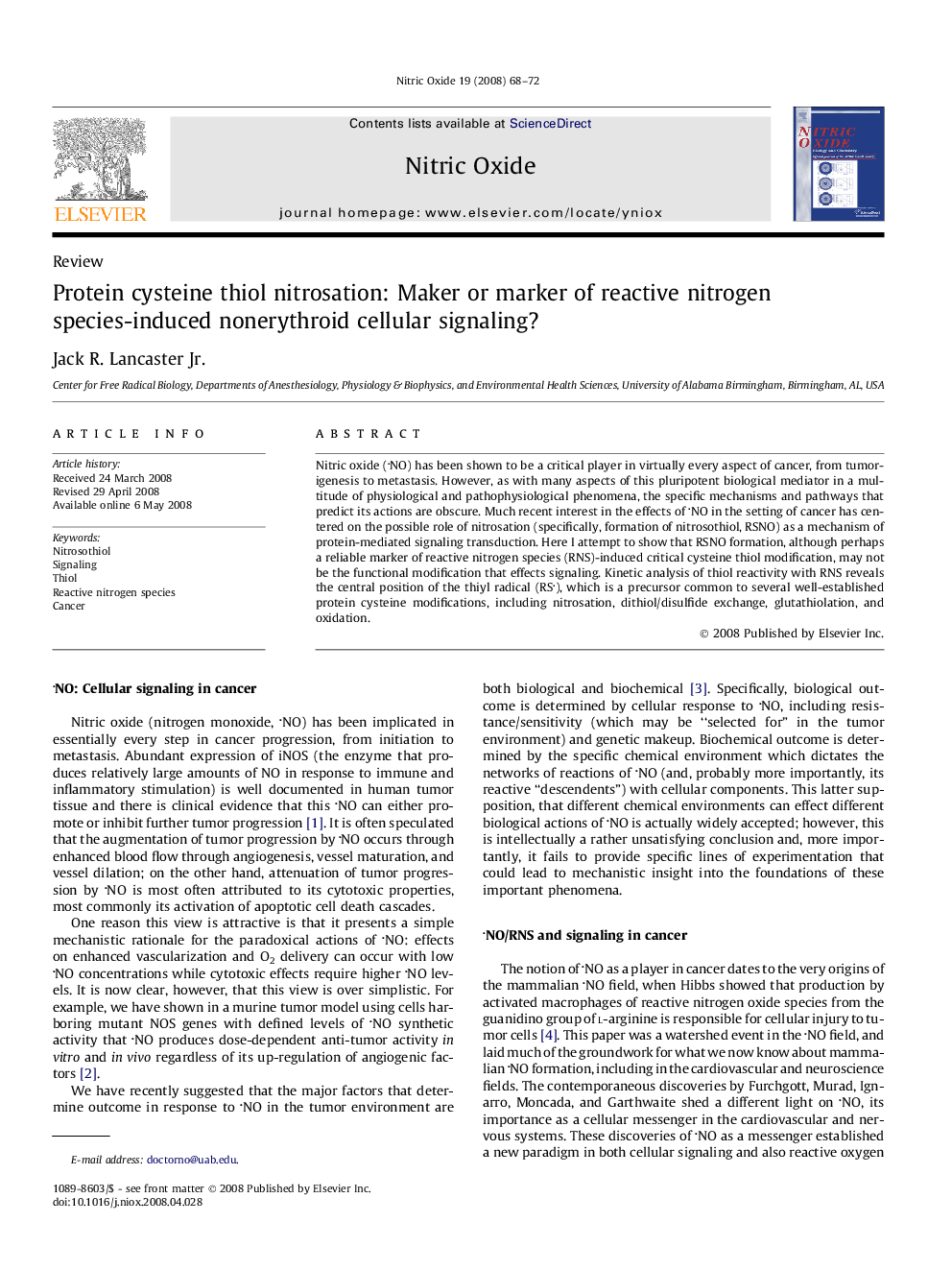| Article ID | Journal | Published Year | Pages | File Type |
|---|---|---|---|---|
| 2001380 | Nitric Oxide | 2008 | 5 Pages |
Nitric oxide (NO) has been shown to be a critical player in virtually every aspect of cancer, from tumorigenesis to metastasis. However, as with many aspects of this pluripotent biological mediator in a multitude of physiological and pathophysiological phenomena, the specific mechanisms and pathways that predict its actions are obscure. Much recent interest in the effects of NO in the setting of cancer has centered on the possible role of nitrosation (specifically, formation of nitrosothiol, RSNO) as a mechanism of protein-mediated signaling transduction. Here I attempt to show that RSNO formation, although perhaps a reliable marker of reactive nitrogen species (RNS)-induced critical cysteine thiol modification, may not be the functional modification that effects signaling. Kinetic analysis of thiol reactivity with RNS reveals the central position of the thiyl radical (RS), which is a precursor common to several well-established protein cysteine modifications, including nitrosation, dithiol/disulfide exchange, glutathiolation, and oxidation.
